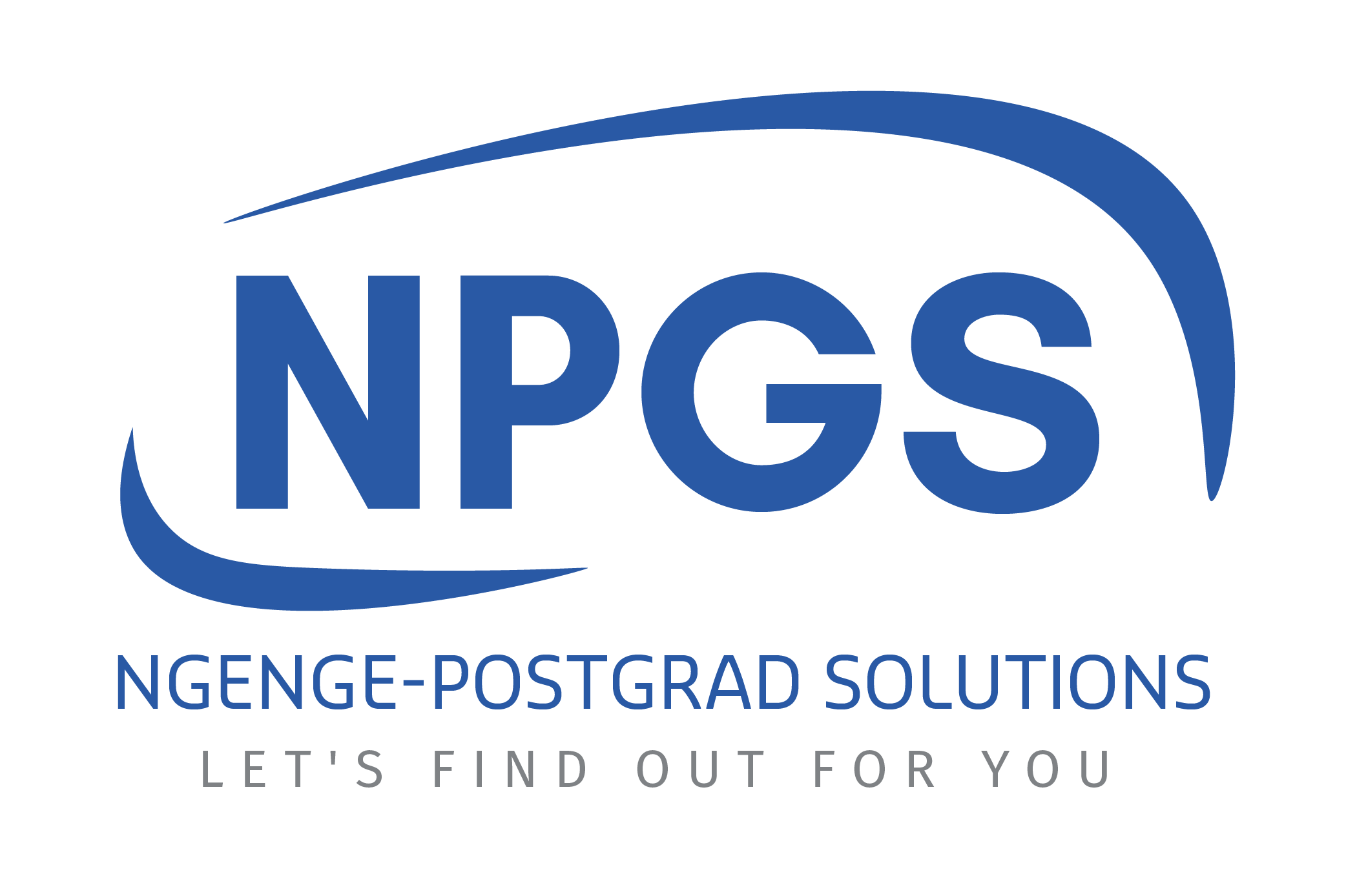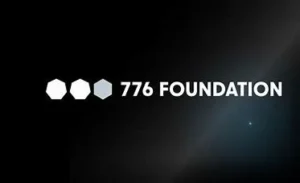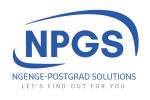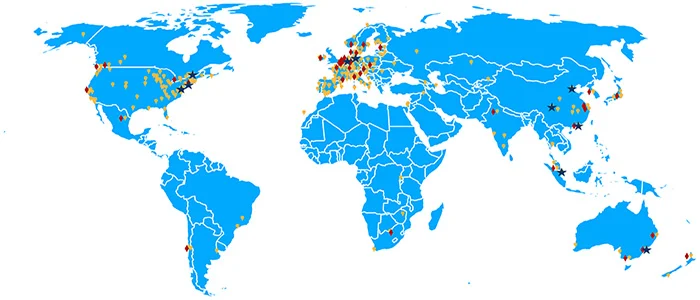Vanier CGS overview
The Government of Canada launched the Vanier Canada Graduate Scholarships (Vanier CGS) program in 2008 to strengthen Canada’s ability to attract and retain world-class doctoral students and establish Canada as a global centre of excellence in research and higher learning. Vanier Scholars demonstrate leadership skills and a high standard of scholarly achievement in graduate studies in the social sciences and humanities, natural sciences and/or engineering and health.
Scope
Up to 166 scholarships are awarded annuallyFootnote 1;
A total of up to 500 scholarships are active at any time.
Value
$50,000 per year
Duration
3 years (non-renewable)
Scholarships are distributed equally between the three federal granting agencies:
- Canadian Institutes of Health Research (CIHR)
- Natural Sciences and Engineering Research Council (NSERC)
- Social Sciences and Humanities Research Council (SSHRC)
Selection Criteria
Timelines
| July – November 2020 | Applicants seek a nominating institution, prepare and submit application package. |
| Internal Deadline (varies) | Deadline to submit application to the nominating institution. Contact nominating institution for specific date. |
| November 3, 2020 (20:00 EST) | Deadline for institutions to submit nominations to the Vanier CGS program. |
| November 2020 – March 2021 | Review and evaluation of nominations. |
| Early April 2021 | Anticipated notification of results.Nominees will be notified by email when the results are available on ResearchNet. |
| May 1, 2021, September 1, 2021 or January 1, 2022 | Payments begin. |
Features
The Vanier CGS program aims to attract and retain world-class doctoral students by supporting students who demonstrate both leadership skills and a high standard of scholarly achievement in graduate studies in the social sciences and humanities, natural sciences and/or engineering and health.
Eligibility
Confirm that you and your nominating institution meet all the criteria below before you apply for a Vanier Canada Graduate Scholarship (Vanier CGS).
Nominations that do not meet all of the eligibility criteria will be deemed ineligible.
Candidate eligibility
Citizenship
Canadian citizens, permanent residents of Canada andforeign citizens are eligible to be nominated for a Vanier CGS.
To be considered for a Vanier CGS, you must:
- be nominated by only one Canadian institution, which must have received a Vanier CGS quota;
- be pursuing your first doctoral degree (including joint graduate research program such as: MD/PhD, DVM/PhD, JD/PhD – if it has a demonstrated and significant research component). Note that only the PhD portion of a combined degree is eligible for funding;
- intend to pursue, in the summer semester or the academic year following the announcement of results, full-time doctoral (or a joint graduate research program such as: MD/PhD, DVM/PhD, JD/PhD) studies and research at the nominating institution; For joint graduate research program, only the PhD portion of a joint graduate research program is eligible for funding.
- have completed no more than 20 months of full-time study in their doctoral program as of May 1, 2021;
- have completed no more than 32 months of full-time study in their doctoral program, by May 1st, 2021 if enrolled in a joint graduate research program, e.g., MD/PhD, MA/PhD, DVM/PhD. Applicants that fall into this category have access to the 32-month window whether or not they were previously enrolled in a Master’s program; or
- have completed no more than 32 months of full-time study in their doctoral program by May 1, 2021 if accelerated directly from a Bachelor’s to a PhD (no time spent in a Master’s program); or
- have completed no more than 32 months of full-time study in their doctoral program by May 1, 2021 if accelerated from a Master’s degree into a Doctoral program without obtaining the Master’s degree.
- have achieved a first-class average, as determined by your institution, in each of the last two years of full-time study or equivalent. Candidates are encouraged to contact the institution for its definition of a first-class average; and
- must not hold, or have held, a doctoral-level scholarship or fellowship from CIHR, NSERC or SSHRC to undertake or complete a doctoral program.
Eligibility of Program of Study
- An eligible doctoral program must include a significant research component that leads to the completion of a thesis, major research project, dissertation, scholarly publication, performance, recital and/or exhibit that is merit/expert-reviewed at the institutional level as requirement for a completion of the program.
- Joint graduate research programs with a professional degree (e.g., MD/PhD, DVM/PhD, JD/PhD) as well as clinically-oriented programs of study, including clinical psychology, are also eligible programs if they have a significant autonomous research component, as described above.
Note: ResearchNet will only allow the creation of one application per applicant. Applicants should only seek a nomination from the institution at which they want to study and are advised to discuss their decision with the nominating institution before they submit the application through ResearchNet.
Number of months of doctoral studies
All prior doctoral-level studies, regardless of discipline, are considered in the evaluation of eligibility, and are considered to be continuous, full-time, and uninterrupted unless otherwise confirmed by the institution (including the summer months, unless on official leave). The Vanier-Banting Secretariat (the Secretariat) will count two months of part-time study as one month of full-time study.
Students who studied on a part-time basis, or who interrupted their studies with their university’s official approval, must outline the dates of interruption or part-time study in the Special Circumstances attachment and the Doctoral Studies Timeline.
The Vanier-Banting Secretariat will start all calculation of the number of months completed from the date on which an applicant is officially registered in the doctoral program with the following exception:
Fast-track and combined programs
For those registered in a Master’s program that subsequently transferred to a doctoral program (fast-track), the months of study completed are calculated from the original Master’s enrolment date.
For those registered in a doctoral program in which a Master’s degree is obtained as part of the program (e.g., MA/PhD), the months of study are still calculated starting from the date on which an applicant is officially registered in the combined program (including the Master’s portion of the program).
Notes:
- All interruptions, delays, part-time studies must be outlined in the special circumstancesattachment.
Nominating institution
The nominating institution must have received a Vanier CGS quota.
Eligibility to hold a Vanier CGS
Without exception, the Vanier CGS is tenable only at the eligible Canadian institution that submitted the nomination.
To hold the Vanier CGS, the candidate must:
- be registeredFootnote 1 as a full-time student at the nominating Canadian institution and be pursuing a doctoral program (or joint graduate research program MA/PhD, MSc/PhD, or MD/PhD); and
- not hold a faculty appointment concurrently with a Vanier Scholarship unless they arrange for a leave of absence from the appointment
- remain enrolled and demonstrate continued satisfactory progress in their doctoral program.
- not hold, or have held, a doctoral-level scholarship from CIHR, NSERC or SSHRC to undertake or complete a doctoral program.
- not be concurrently holding any other SSHRC, NSERC or CIHR training award (note: Michael Smith Foreign Studies Supplement excepted).
Part-time studies
A Vanier CGS may be held by students who are registered part-time because of a disability or family responsibilities. For eligible part-time students, the Vanier CGS will be equivalent to full-time funding spread over a longer period of time.
Canadian federal government employees
Canadian federal government employees are eligible to hold a scholarship only if an unpaid leave of absence is taken (no salary or special allowances permitted).
Multiple applications
Eligible candidates may apply to both the Vanier Canada Graduate Scholarship program and other agency-specific doctoral-level scholarship/fellowships programs (whether to the same or a different federal granting agency) in the same academic year, provided that the research proposed in each application falls within the mandate of the federal granting agency to which the application is submitted. For more information, please refer to Identify area of research.
Note: since eligibility, evaluation criteria and competition deadlines are different; applications submitted to Vanier CGS are not considered in agency-specific doctoral award competitions. You must apply to each program individually.
Candidates who are successful in both competitions will have to choose which award to accept.
Information for nominating institutions
Memorandum
Equity, Diversity, and Inclusion
Nominating institutions are encouraged to consider diversity on multiple levels (e.g.,research discipline, gender, official language, cultural background, citizenship) when considering which applicants to nominate for the Vanier Canada Graduate Scholarships (Vanier CGS) program.
Equity and diversity must be considered at all levels of the selection/recruitment, endorsement/Nomination and review processes of a Vanier application. The Vanier-Banting Secretariat is actively engaged in promoting equity and diversity, as well as increasing awareness of implicit (or unconscious) bias with everyone involved in the selection of a Vanier Scholar. To this end, please review the Equity, Diversity and Inclusion page.
Quotas by Institution
View the annual nomination quotas for the 2018 to 2020 competitions.
Eligible Canadian institutions receive three-year quotasbased on 600 total nominations per federal granting agency (CIHR, NSERC and SSHRC). These three-year quotas have been determined for the 2018-2019, 2019-2020 and 2020-2021 competitions as follows:
- Each granting agency receives a three-year quota of 600
- Each agency calculates the following for each nominating institution:
- The amount of funding received through the Canada Research Chairs (CRC) program, as of the latest (i.e.2014) calculation for the CRC allocations.
- The amount of funding received through agency doctoral ( i.e. agency-specific and CGS-D) and Vanier programs in 2014-2015, 2015-2016, and 2016-2017.
The sum of (a) and (b) is calculated by the Secretariat to determine the total doctoral and CRC funding received by the nominating institution. This total is then converted to a fraction of the total doctoral and CRC funding received by all institutions. This fraction is multiplied by the three-year quota distribution of 600 to determine the final quota for each nominating institution.
- Industry-partnered doctoral data will not be included in the calculation of the amount of doctoral funding received.
- All institutions MUST have received CRC allocation in order to receive a quota.
- All institutions MUST have an eligible doctoral program. Doctoral-level funding is NOT required; however, it is factored into the calculations and may influence the number of quotas given to an institution.
Note: Vanier CGS quotas are calculated for a three year period; annual quotas are determined by dividing the three-year allocation by three. Remainders are considered “floating quotas” and can be used in any year within the three year period. Floating quotas are included in the current competition, but will only be applied where the number of nominations exceeds the number of quotas for that given year.
Eligible Canadian institutions will be provided a yearly quota within the existing three year quota allotment. Any unused annual quotas will not be carried forward. Floating quotas may be used in any of the three Fiscal Years.
Nomination letters (maximum 2 pages)
(must follow the specifications found in the instructions provided in the Presentation standards for documentssection)
Nomination letters – to be completed/signed by the Department Head nominating the candidate
Institutions must provide a nomination letter, along with the application form, for each student nominated for a Vanier CGS.
This nomination letter must be completed and signed by the Department Head nominating the candidate (equivalent or designate) and must be on the institution’s letterhead. If signed by someone other than the Department Head, it should be clearly indicated in the letter that the signee has authority to nominate candidates to the Vanier CGS program.
The nomination letter should be a maximum of two pages in length, and is the Institution’s opportunity to outline for the selection committee what makes the nominee unique. It should give the committee context for the nominee’s achievements – outline how the nominee is exceptional and how the institution both fosters and benefits the student (e.g., what kind of benefits or advantages the institution will offer). Address the following points:
- Rationale for the choice of candidate:
- Highlight the factors used to determine why the student is deserving of a Vanier CGS. Clearly articulate the excellence of the candidate according to the three selection criteria: Academic Excellence, Research Potential and Leadership (potential and demonstrated ability). Ensure that the letters focus on leadership potential and demonstrated abilities.
- Research training environment:
- Elaborate on the appropriateness of the supervisor in terms of resources, funding, publications, their research and training environment. Elaborate on the funding, facilities/resources and personnel that will be made available to support the candidate as they carry out their proposed research and develop their leadership potential.
- Discuss how the research interests/background of the student and supervisor align with the institution’s priorities. (Ensure that claims about the uniqueness of the research environment are accurate.)
- Elaborate on your institution’s resources regarding any established research-related policies and protocols (e.g., protocols for conducting research involving the First Nations, Inuit and Métis Peoples of Canada; approvals for research involving the use of humans, animals or biohazards).
- In the case of applications in which the proposed research respectfully involves and engages Indigenous communities, describe how relationships are being developed with relevant Indigenous communities to engage their collaboration in the proposed research and to promote reciprocity in terms of the benefits derived from the research process and outcomes. Describe any support provided to facilitate collaborations between the applicant, the host institution and Indigenous communities/partners.
The following key concepts should substantiated in the supervisor’s statement:
- Indigenous or traditional knowledge
- Reciprocity
- Community
- Respect, relevance and contributions
For more information, see our EDI page.
- In the case of applications in which the proposed research respectfully involves and engages Indigenous communities, describe how relationships are being developed with relevant Indigenous communities to engage their collaboration in the proposed research and to promote reciprocity in terms of the benefits derived from the research process and outcomes. Describe any support provided to facilitate collaborations between the applicant, the host institution and Indigenous communities/partners.
- Discuss how the supervisor’s commitment will be available to support the candidate in furthering their professional and leadership development.
- If known, comment on the research group and/or faculty with whom the candidate will interact and how the Canadian institution will support the development of the candidate’s leadership potential. If unknown, address the reasons behind why the candidate has not selected a supervisor and research environment.
- Rationale of recruiting the candidate:
- Outline how the institution’s research environment will foster the student’s research interest and leadership skills.
- Elaborate on the commitment from the department or university as to what kind of benefits they will offer the potential scholar.
- Recruitment:
- Comment on how the institution’s nomination of the candidate promotes the recruitment of new foreign or Canadian candidates to Canadian institutions.
- If the candidate has completed a previous degree within your institution, provide an explanation as to why it is in the candidate’s best interest to stay at the same institution (i.e. research/paid institution (or its affiliate), supervisor or co-supervisor, availability of specialized equipment).
- Equity, Diversity and Inclusion:
- Comment on the university’s commitment to fostering equity, diversity and inclusion as part of the recruitment and nomination processes.
- Refer to the Equity, Diversity and Inclusionsection of the Vanier website for further information.
Official Transcripts and Doctoral Studies Timeline
The nominating Institution must upload the following documents to applications being nominated to the Vanier CGS program:
- Official Transcript
- Doctoral Studies Timeline
Official Transcripts
All post-secondary transcripts must be attached to each nomination package. If these transcripts include credits earned at a college or CEGEP (college of general and professional education) that have been transferred to a university degree for credit, include the college or CEGEP transcript only if the grade earned does not appear on the university transcript. One copy of the legend (reverse of each transcript) must be included; Transcript text must be horizontal and uploaded in order from least recent to most recent.
Note 1: Certified true copies of official transcripts from the university are accepted. A certified true copy is defined as a copy of the original document (or of the original translated document if official transcript is not in either English or French). The Vanier Banting Secretariat (The Secretariat) will accept copies of official transcripts if the nominating institution certifies them as true copies.
Unofficial transcripts will be accepted from nominating institutions only for programs completed or in progress at the institution nominating the student, and only where the institution will be able to provide an official copy of the transcript upon request. Note that all transcripts must be easily legible for the selection committee, and must include the institution’s name and/or logo. Otherwise, the Secretariat will only accept official transcripts from your nominating institution.
Note 2: For institutions nominating students who will include foreign transcripts, include a document that clarifies how the foreign transcripts translate to a Canadian equivalent. The Grading scale available at World Education Services for the country from which the international transcript comes may help with this task.
- If your institution has guidelines to determine their institutional-equivalent grade when evaluating international transcripts, include this interpretation of the grades as part of the transcript package instead of the WES.
- If the international transcripts are not presented in one of Canada’s two official languages (English or French), include a certified translation, separated from the original transcripts by a blank page.
- When presenting a nomination package, keep in mind that the overarching goal is to render complicated transcripts easy to read for the committee. In your explanations, be brief and concise. The Secretariat will not remove information included by a nominating institution, but will exclude letters of explanation written by students.
- Because committee members review nominations electronically, the Secretariat recommends ensuring that all nominations are aligned such that they do not have to be rotated to be read.
Doctoral Studies Timeline
Upload the applicants Doctoral Studies Timeline under the document type on ResearchNet: Transcripts – using Description: Doctoral Studies Timelines.
Information for referees
The Vanier Canada Graduate Scholarship (Vanier CGS) program provides funding to world-class doctoral nominees, both nationally and internationally, who will positively contribute to the country’s economic, social and research-based growth. For more information about the program, refer to the About Us section of our website.
The objectives of the Vanier Canada Graduate Scholarship program are to:
- attract and retain top-tier doctoral talent, both nationally and internationally;
- develop their leadership potential;
- position them for success as research leaders of tomorrow.
Nomination for this scholarship includes an assessment from two (2) academic referees. Refer to the application/nomination instruction for more details.
Referee Assessment
Vanier CGS nominations are reviewed by one of three multidisciplinary selection committees based on broad discipline areas: Health (CIHR), Natural Sciences and/or Engineering (NSERC), or Social Sciences and Humanities (SSHRC).
Selection committee members consider referee assessments as part of their overall review and to corroborate their own evaluation of the application. Since referee assessments play a critical role in the review process, referees should be mindful of using them to evaluate (versus advocate for) the nomination. There are three parts to their assessment:
- Academic excellence
- Research potential
- Leadership (Potential and Demonstrated Ability)
Since the selection committees are multidisciplinary in nature, providing evidence and examples to support the assessment in comparison to normal expectations for PhD students in the research area(s) is very useful. For example, it would be useful to:
- Identify existing knowledge gaps within the discipline related to the proposal
- Outline avenues for research dissemination, according to disciplinary norms and/or the needs of knowledge users
- Explain authorship norms for publications within the discipline
- Describe the impact of the applicant’s various research and leadership contributions ( e.g., impact on the discipline and/or community, significance for collaborating partners and/or knowledge users, prestige of publication venue)
The following instructions are provided to referees for completing the assessment in ResearchNet:
- Academic excellence: ( max 2250 characters) Provide an assessment of the candidate’s academic excellence as demonstrated by past academic results and by transcripts, awards and distinctions. Since the review committee is multidisciplinary, please provide an assessment that references the norms and expectations of the student’s discipline. If applicable, please also comment on results achieved outside of the university environment.
- Research potential: (max 2250 characters) Provide an assessment of the candidate’s research potential as demonstrated by their research history, interest in discovery, the proposed research and its potential contribution to the advancement of knowledge in the field and any anticipated outcomes. Include examples to support your assessment in comparison to the norms particular to the research area(s) (e.g. publication norms for the discipline etc.)
- Leadership: (max 4500 characters) Provide an assessment of demonstrated and potential leadership ability. Because there is no opportunity to interview the students, please elaborate for the committee how the candidate has gone above and beyond the opportunities presented in order to achieve a goal, contribute to their community, or how they have taken on responsibility for others. Note that high achievement, while admirable, does not necessarily constitute leadership. Be sure to provide context for the committee that illuminates how the candidate’s participation in activities (e.g., volunteer or work, sport or art, and any other participation) goes above and beyond active participation and becomes leadership.
Note:
It is the applicant’s responsibility to provide referees with the information that they need in order to complete their assessments.
Referees must complete all sections of the assessment online via ResearchNet. They will not be able to upload documents in ResearchNet or submit assessments off-line. Only once all sections (including the section requiring information about the referee) have been completed will the submit button be available.
When asked to provide a referee Assessment
The following best practices and considerations should be taken into account when providing a referee assessment:
- Be accurate, fair, clear and balanced.
- Avoid being unduly personal.
- Support your points by providing specific examples of accomplishments where possible.
- Use superlative descriptors (e.g., excellent, outstanding) judiciously and support them with evidence.
- Do not include information related to ethnicity, age, hobbies, marital status, religion, etc.
- Avoid sharing personal information about the applicant. Such information may be helpful only in explaining academic delays or interruptions and should be addressed with caution.
Limiting Unconscious Bias
Biases may manifest themselves in several ways and could be based on a school of thought, fundamental versus applied or translational research, areas of research or approaches (including emerging ones), size or reputation of a participating institution, age, cultural background, language, personal factors or gender of the applicant.
Referees are cautioned against using any inappropriate judgment of an application based on such factors, and are asked to constantly guard against the possibility of implicit bias influencing their assessment or the review of the application by the selection committee.
The use of inclusive language is encouraged (e.g. “the applicant” or “they” instead of “he/she”). Referee assessments should be free from words or sentences that reflect prejudiced, stereotyped or discriminatory language of particular people or groups, or their institution.
The Tri-agencies are actively engaged in promoting equity and diversity, as well as decreasing unconscious bias in their review processes. You must review the Equity, Diversity and Inclusion page before beginning your assessment of an application.
Request for an assessment
Referees will receive a request via e-mail from ResearchNet (an application platform used by the Vanier CGS program) with instructions on how to link to the assessment form. This email is automatically generated by ResearchNet, so be sure to check your spam/junk folder.
The email sent by ResearchNet will include a unique URL that allows you access to the referee form. You will not receive access to the application package; speak to the candidate to receive the information that you will need to complete this task.
If the email requesting assessment is misplaced, the student may generate another unique URL by re-sending the invitation (see Task 8 – Identify Referees in the instructions for applicants). If the student resends the invitation, or deletes and re-invites you as a referee, this action will render all previously sent URLs inactive.
Deadline for the assessment
The referee assessment must be submitted via ResearchNet no later than the Assessment Required Deadline Date displayed on the online referee assessment page. Please contact the nominee if you have any questions about the deadline.
The applicant will not be able to submit their application if the referee assessment is not received by their submission deadline.







